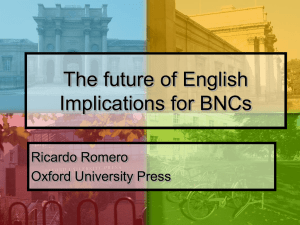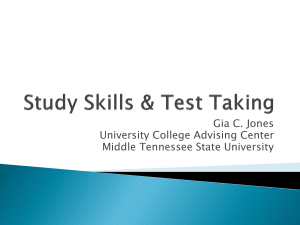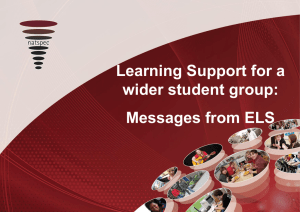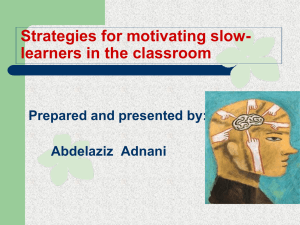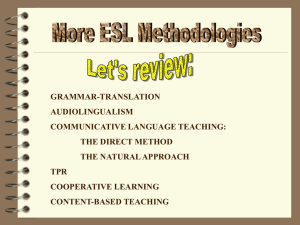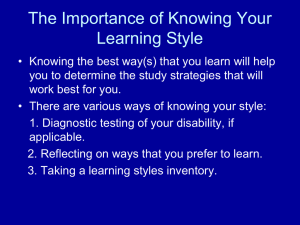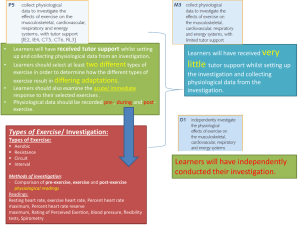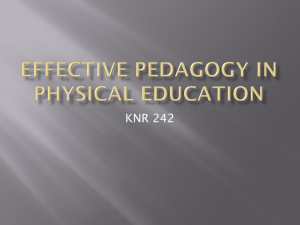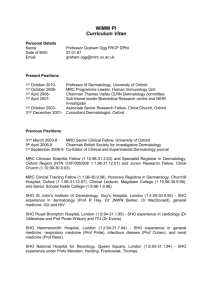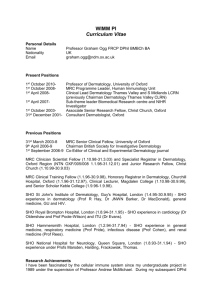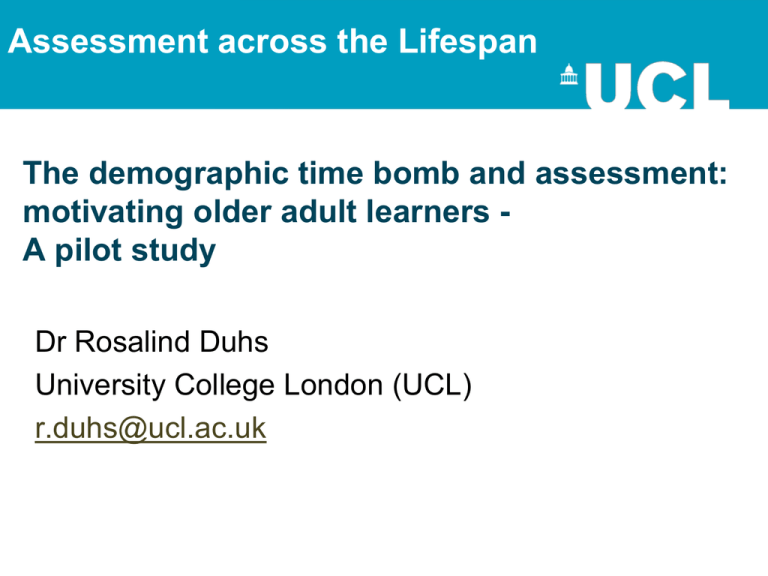
Assessment across the Lifespan
The demographic time bomb and assessment:
motivating older adult learners A pilot study
Dr Rosalind Duhs
University College London (UCL)
r.duhs@ucl.ac.uk
This study is not a BIG BEAST (Desjardins)
People behind the statistics
Overview of presentation
1.
2.
3.
4.
5.
6.
Background and rationale
Literature
Research questions: pilot study
Methods
Findings
Conclusion and discussion
1. Background and rationale
1. The topic
–
–
the demographic time bomb
assessment to motivate learners
2. Older university learners
2012 – European Year for Active Ageing and Solidarity
between Generations
Older university learners deserve assessment
Context
University
Lifelong learning beyond 50 and into old age
• For this study: university learning (formal)
Open University (UK) 7,800 learners over 65
• Universities UK report and Age UK ‘value of
lifelong learning’ (Phillipson and Ogg, 2010, p.13)
• Richard Desjardins – individual behaviours
‘use it or lose it’. ‘It may be possible to mitigate,
delay or prevent cognitive decline.’
Universities UK
‘Investment now in education – and
higher education in particular – is likely to have
major benefits for individuals and for society as it
will help older people remain economically and
socially engaged.’ (Phillipson and Ogg, 2010, p.39)
The topic: the demographic time bomb
Developed world
The majority of babies born since 2000 are likely to
reach 100 (Phillipson and Ogg, 2010, p.6)
Europe
Less than two people aged 15-64 for every person aged
65+ by 2060 (4:1 2012) (Eurostat 2012 p.32)
UK
• 2007: more people of state pension age than under 16
20.7 million people aged 50 and over.
Result of demographic time bomb
No fixed retirement age
Longer employment is an economic necessity
Formal lifelong learning
2. Literature
• ‘…in the future older adults will be encouraged to
return to work or remain in the workforce’
(Bunyan 2005)
• Lifelong learning across the lifespan is beneficial
to health and may lessen the risk of dementia
(Friedrich 2003)
• Learning … ‘can protect against cognitive decline’
(Beddington 2008 p.1058)
Assessment to motivate learners
Participation in formal learning (for accreditation or
certification) declines sharply from 50 onwards
(Phillipson and Ogg, 2010, p.4)
More demanding learning – better for the brain?
Assessment shapes learning
Backwash
Boud (2010) and Gibbs (1999, 2003)
Successful older learners: many examples
Bertie Gladwin, left school at 14, third degree at 90,
MA in Intelligence History, distinction in his
dissertation (Garner 2012)
3. Research questions: pilot study
How do older learners experience assessment at
university? (formative and summative)
(both traditional unseen examinations and
coursework such as essays or projects, etc)
• Do they consider that assessment protects them
against cognitive decline?
• Are marks important to them?
• Does formative assessment help them to improve
their work?
4. Research methods (pilot study)
• Survey with Likert-type questions and space for
free text responses
• So far: survey pilot with group of six older learners
• Four Swedish, two English, studying/recently
studied arts subjects at university, three in
England, three in Sweden
5. Findings
Two cases and overall characteristics
Swedish male, aged between 66 and 70
Assignments marked by lecturers:
‘Very happy with good marks. Rather indifferent to
bad marks if I feel that they are unjust. Quite upset
if I have failed through my own bad efforts.’
Feedback helps me to improve my work.
The marks I get matter to me.
Summative assessment
I agree strongly that examinations help me to grasp
important course concepts.
I agree that the examinable component protects
against cognitive decline.
‘You are in the course with a lot of young people.
You have to show yourself that your [sic] as good
as they.’
‘University studies are good for you as an old man.’
English female, aged between 66 and 70
‘I agree that written assignments marked by
lecturers help me to focus on learning. Written
assignments require plenty of preparatory
reading.’
The feedback on assignments marked by lecturers
helps me to improve my work.
‘Some lecturers had the gift of good feedback,
others were discouraging.’
I agree that the marks I get for my assignments
matter to me. ‘The better marks were
encouraging, lower ones were dampening to the
self-esteem but stimulated some more study.’
The two cases: self-efficacy
‘Older adults have reduced levels of self-efficacy’
‘…negative ageing stereotypes’ lead to reduced
effort.
‘Such beliefs can become self-fulfilling prophecies.’
(Aukrust 2011, p.242)
Five out of six cases
• Agree or agree strongly that summative
assessment protects against cognitive decline
• Much prefer/prefer other forms of assessment to
examinations
• Six out of six care about their marks
6. Conclusion and discussion
How do older learners experience assessment at
university? (formative and summative)
They regard assessment as important and care
about their marks.
They believe that formative assessment helps them
to improve their work.
They mostly consider that assessment protects
them agains cognitive decline.
From this preliminary exploration:
It appears to be worthwhile to encourage
more older learners to learn at university
and experience
educational assessment.
Thank you
References and further reading
Aukrust, V.G. (2011) Learning and Cognition in Education. Oxford:
Academic Press
Beddington, J. et al (2008) ‘The Mental Wealth of Nations’. Nature,455
p.1057
Biggs, J. (2003). Teaching for Quality Learning at University. 2nd ed.
Buckingham: The Society for Research into Higher Education & Open
University Press.
Bunyan, K. and Jordan, A. (2005) ’Too Late for the Learning: lessons
from older learners’. Research in Post-Compulsory Education,10 (2)
Eurostat (2012) Active ageing and solidarity between generations: 2012
edition. A statistical portrait of the European Union 2012
Friedrich, D. (2003) Personal and societal intervention strategies for
successful ageing. Ageing International 28(1), 3-36
Garner, R. (2012) ‘The oldest master: student who left school at 14 gets
his third degree at 90’. The Independent www.independent.co.uk
Phillipson, G. and Ogg, J. (2010) Active ageing and universities:
Engaging older learners. Universities UK.

